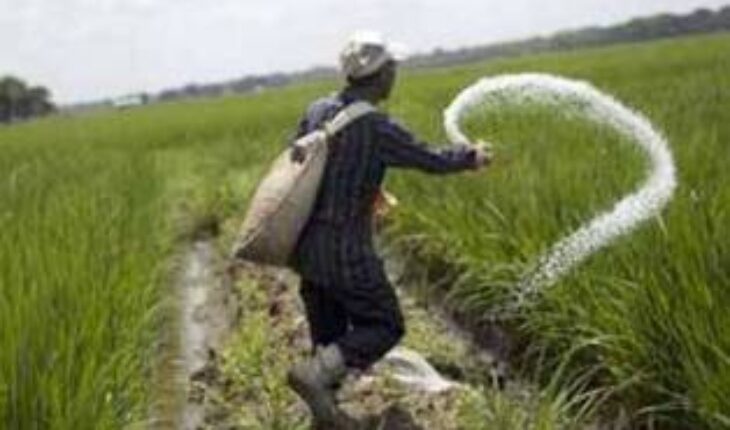NEW DELHI: As farmers prepare for sowing of rabi crops like wheat, from next month, the government has reassured them saying there is adequate supply of agri-inputs, especially fertilisers and seeds, to meet demand.
Sowing of rabi crops begins from October and the harvesting from April. Wheat is the main rabi crop, while maize, millets, pulses and oilseeds are also grown.
Government is targeting wheat production of 96.50 million tonnes in 2016-17 rabi season, while pulses at 13.50 million tonnes. “There won’t be any shortage of agri-inputs like fertilisers and seeds in the rabi season. The supply is sufficient,” a senior Agriculture Ministry official said. The state governments have been asked to keep all agri-inputs ready and take steps to conserve moisture to promote timely sowing of rabi crops, the official added. According to the ministry’s data, the availability of urea is estimated to be 166.22 lakh tonnes in the rabi season of the 2016-17 crop year (July-June), as against the requirement of 166.20 lakh tonnes for the same period. Similarly, the supply of Di-ammonium Phosphate (DAP) is estimated to be 52.45 lakh tonnes, much higher than the requirement of 51.41 lakh tonnes. Even the supply of Muriate of Potash (MoP), NPK and Single Superphosphate (SSP) are estimated to be 18.50 lakh tonnes, 53.70 lakh tonnes, and 33.57 lakh tonnes respectively during the ensuing rabi season. In case of seeds, the official said except for some pulses, there is no shortage of seeds of other rabi crops. The availability of wheat seeds is estimated to be 136.5 lakh quintals during the rabi season, much higher than the requirement of 117.5 lakh quintals The supply of jowar seeds would be 1.25 lakh quintals against the requirement of 1.21 lakh quintals, while chickpea seeds supply would be lower at 16 lakh quintals as against 17.6 lakh quintals and even supply of urad seeds is estimated to be lower at 1.03 lakh quintals as compared to the requirement of 1.08 lakh quintals in the said period. The official said that the state governments have been asked to promote seed production during the off-season to make up the deficit. They have also been asked to enforce seed certification standards.—PTI





